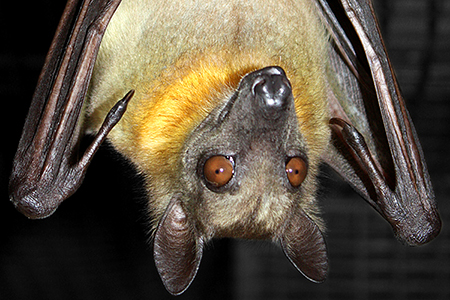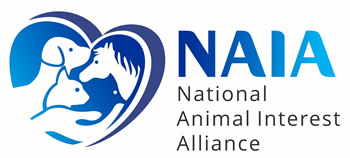
Inside This Issue:
- In Germany, Dachshunds are the Latest Target of Anti-purebred Activists
- Study: Humans Transmit Way More Viruses to Animals than They Do to Us
- Easy Math: Fewer Adoption Barriers = More Pets in Homes
- Proposed MN Legislation Would Make Dog Breeder Data Public
In Germany, Dachshunds are the Latest Target of Anti-purebred Activists

Pensive Dachshund
No more weiner dogs? A new German draft bill could outlaw breeding Dachshunds in their own home country on the grounds that their long backs and short legs fall under the umbrella of “torture breeding.”
Like all breeds, Dachshunds have specific characteristics based on their original jobs, which could become targets for those who would ban all dogs and human-dog associations. Experienced Dachshund breeders are dedicated to preserving their breed's working ability as well as maintaining the many other endearing qualities that Dachshunds possess. Reputable Dachshund breeders aren’t thoughtlessly counting dollar signs (Euros, in this case) without regard to quality of life – they are breeding with the goal of improving health and fitness, trying to produce dogs with the singular look and clever, playful personalities this breed is cherished for. The idea that breeding these beloved dogs is inherently immoral, or even a form of “torture” that needs to be banned, is wrongheaded and dangerously over the line.
One argument in opposition to this proposed bill says that if you interpret it strictly, any significant deviation from the wolf’s skeletal structure can be viewed as abnormal, and subject to ban. In that scenario – boom! No more well-bred Toy Poodles, Great Danes, and numerous other beloved breeds of dog. To someone who hasn't experienced the socio-political aspects of dog breeding, this scenario probably sounds crazy or at least unlikely. But it is important to recognize that anti-breeding/purebred activists work incrementally. A passionate subset of the people who support legislation aimed at banning what they describe as “extreme” breed traits won’t be satisfied by eliminating Bulldogs, Pugs, and Dachshunds. Be wary. They’ll inevitably be back targeting more breeds, because the entire concept of deliberately breeding dogs – especially “purebred” dogs – is abhorrent to them. Whether it's the head of PETA labeling purebred dogs as nothing but sheer "vanity" or HSUS's disgraced former CEO saying he's fine with the extinction of deliberately bred animals, their end game is clear.
Dachshunds under threat as Germany proposes ban on breeding
Resources
★ Norwegian court overturns English bulldog breeding ban
★ NAIA: Quotes from the leaders of the animal rights movement
Study: Humans Transmit Way More Viruses to Animals than They Do to Us

"Hey bud, do you mind breathing somewhere else?"
A new study shows that humans transmit nearly twice as many viruses to animals as animals give to us. And while this can be hard on pets and livestock, it’s even more severe when it comes to wildlife. Sorry about that, animals!
These aren’t counter-intuitive findings. It’s just that people, quite understandably, tend to be more concerned about the viruses that can infect us! But we carry around a boatload of dangerous viruses ourselves… and lots of us just love being around animals.
Usually, when a virus is transmitted from species-to-species, it doesn’t amount to much. Despite successfully making the jump, the virus simply isn’t equipped to thrive in its new host. But alas, there is always a tiny chance it could find a new favorite home. When that happens, the virus has the advantage of limited preexisting immunity, and the jumped species can be devastated.
HIV, which jumped from chimpanzees to humans is an “old school” example of this phenomenon. Highly pathogenic avian influenza (which was just found in cows) is the biggest current cross-species culprit. Meanwhile, SARS-CoV-2 (COVID) is a recent famous jumper, while Ebola created an entire subgenre of procedural and horror films.
Humans give more viruses to animals than they give us, study finds
Resources
★ Bird Flu Spreads to Dairy Cows In Multiple States, What to Know
★ Surprise COVID Discovery Helps Explain How Coronaviruses Jump Species
Easy Math: Fewer Adoption Barriers = More Pets in Homes

Apartment life with dogs can be more challenging... but when it works, it shouldn't be a barrier to adoption.
New and flexible approaches to pet adoption have been crucial in helping animals get out of shelters and into permanent, loving homes.
Until quite recently, it wasn’t uncommon that a person or household had to meet strict, even intrusive requirements for pet adoption. In some cases, it was as simple as one strike and yer out! While frustrating and counterproductive, the impulse behind wanting to match every shelter pet with a perfect home isn’t necessarily evil. Aside from wanting a happy post-shelter life for the animals we look after, it’s also far more practical to send pets into homes where they have the best odds of success. Who wouldn’t want that? Of course, this impulse can, and has, too often overridden common sense in the world of animal sheltering.
Live in an apartment or don’t have the right type of yard? Work too many hours a week? Do you own an unaltered animal (regardless of species)? Do you think our adoption fee is too high? Have a problem with home visits? No pet for you! While vetting potential adopters is a vital part of the rescue process, this can quickly become overwhelming, and turn adopters away.
But today – perhaps in response to the surge in economic and housing-related pet surrenders – new and more flexible approaches to adoption are being employed. And they are proving crucial in helping animals out of shelters and into permanent, loving homes. We’re seeing simplified adoption processes and reduced paperwork, lower fees and waivers, adopter education, training, material support and retention programs for current owners, and more.
Along the way, and perhaps most importantly, more shelters are making an effort to know their adopters and simply match them with pets that best suit their situation. And this is a crucial distinction: it’s not about checking off all the right boxes for the perfect home, but making a match that has the best odds for success.
Removing barriers to pet adoption means more happy endings
Resources
★ America’s animal shelters are overcrowded with pets from families facing economic and housing woes
★ FIDO: Friends Involved in Dog Outreach
Proposed MN Legislation Would Make Dog Breeder Data Public

Don't panic. Mom is almost certainly nearby – we promise!
MN HF 3410, introduced this February by Rep. Mike Freiburg, is a bill to “classify commercial dog and cat breeder data collected and maintained by the Board of Animal Health; modify kennel and dealer advertising requirements; and require the Board of Animal Health to post kennel, dealer, and commercial breeder information.”
The aim of MN HF 3410 is to provide transparency for consumers that want to purchase pets from breeders. Dog and cat breeders with 10 or more unneutered animals that produce more than five litters a year became subject to state supervision and licensing in 2014. Smaller hobbyist breeders did not fall under the requirements. At that time, a last-minute amendment allowed only for the names of approximately 100 Minnesota breeders to be published.
With this new proposed legislation, Minnesotans will be able to request the following information from the Board of Animal Health: the three most recent inspection reports, the city or township a breeder is located in, the business names a breeder has used in the past, and whether their license has been previously revoked.
Proponents of the bill say they want consumers tohave access to breeder information, such as how many violations they may have had. Opponents say this will open breeders up to harassment and worry that it will discourage small businesses in Minnesota.
Large breeding facilities are harder for the consumers to assess than small in-home kennels and catteries, so regulations including inspections have proven necessary to foster proper animal care. To aid the public, USDA has published breeder (dealer) inspection reports on its website for over a decade with positive results.
One thing that would make bills like MN HF 3410 more effective is the addition of sourcing requirements for rescues and shelters. More than half of all dogs acquired in the US today are from such entities. Without similar regulations and transparency requirements, adoption agencies can and have sourced their animals from the worst underground kennels in the country, buying and then placing these breeders’ overstock puppies as rescues. If animal health and wellbeing and consumer protection are worthy goals, then reasonable regulations and transparency should be applied to businesses and nonprofits alike.
Dog breeder data no longer private under proposed legislation in Minnesota
Resources
★ Engrossed version of Bill
★ Bill Summary - House Research
Also in the News...
★ Animal shelter pleads for help fostering dogs after truck crashes into building (Shelters & Rescues; Collision & State of Emergency)
★ Movement of crops, animals played a key role in domestication (Evolution; Agriculture; Archeology; Human-Animal Bond)
★ Not Getting Mauled By Animals Feels Like It's Gotten Way More Complicated Than It Needs To Be (Wildlife; Humorous Yet Helpful Advice)
★ These fish are 'living fossils'—among the most primitive animals on Earth (Insanely Slow Molecular Evolution)
★ Two dogs revived, other animals dead after St. Augustine house fire (Fire & Safety; Revivals & Tragic Losses)
★ Proposed updates to Denton’s animal code are moving forward, including required microchipping (Local Level Animal Laws)
Click here to see what is happening legislatively

